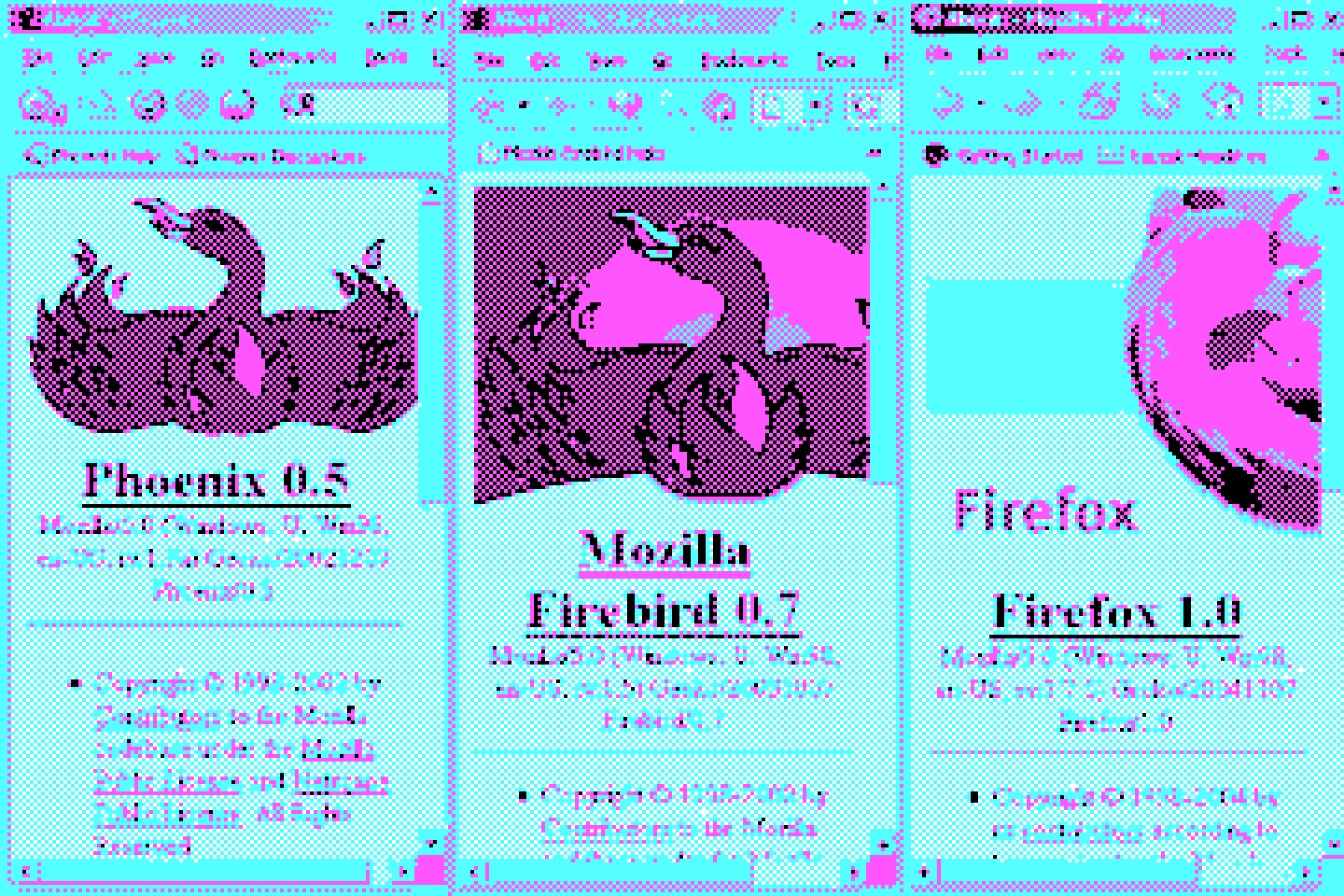De redders van het internet
Mozilla moet herbronnen. Gelukkig staan andere organisaties klaar.

The new stewards of the internet
Mozilla needs a reset. Luckily, other organisations are taking on the mantle.
A phoenix in ashes
Firefox just turned 20. Unfortunately, its parent Mozilla is in rough shape.
My heart bleeds. Myself a teenager growing up with tech, I followed the coming of Firefox closely. It made me conscious about opinionated software. Following its open-source development cycles probably cemented my love for technology. (And my habit of always checking release notes.)
More importantly, it changed the internet. Itself rising from the ashes of Netscape, Firefox (first named 'Phoenix') ignited the fire that would eventually burn down Internet Explorer.
Today, it seems it's smoldering its way into irrelevance.

While the browser is still great, its market share of 2-4% is a far cry from its heyday, when it exceeded 30%. What's worse, Mozilla itself is in shambles. It just announced its second round of layoffs this year. It's facing a leadership crisis. And there's a high chance it will lose most of its revenue, with the Google Search exclusivity deals in regulators' crosshairs.
Maybe the crisis is a good thing. The Google deal was always a dance with the devil. How can you advocate for privacy while being in bed with a surveillance capitalist? What does advocating for a better internet even mean today? And where can Mozilla make a difference with its own products, and where should it just stop competing?
I sincerely hope Mozilla does some serious reflecting, and returns to its roots. Browsers are interesting again, so I'm sure I could find a Firefox replacement should I want to. But the internet today needs stewards like Mozilla once was.
Luckily, there are others taking on the mantle.
The new flock
Starting out close to Mozilla, given its focus on privacy: Proton. Proton is a great VPN service. And it offers a pretty complete, fully encrypted alternative to Google Workspace as well. I haven't used its Calendar, Drive or Password Manager, but the mail client works well. I like how its product portfolio ties together. And how Proton is controlled by a non-profit foundation. This means decisions, even commercial ones, are always taken with the people's interests in mind, and it shows.

Maybe you are confused to read 'non-profit' and 'commercial' together in one statement. Until recently, I would have been confused too. But then, Ghost co-founder John O'Nolan wrote this excellent post about how the company is structured. The publishing platform is profitable and competitive. But its non-profit structure means it will always serve the interest of the internet. John is a thoughtful thinker who has a clear vision on how Ghost should evolve. But the governance he put in place is specifically designed to prevent him from ever becoming a 'benevolent dictator for life' (BDFL). With Matt 'Wordpress.org is me' Mullenweg having a crazy meltdown, Ghost and John are refreshing.

I'm proud this website (albeit a micro-operation) runs on Ghost. And I'm looking forward to enabling the ActivityPub-integration. Here as well, John and his team are proving excellent stewards of the web. (Plus: their explanation of ActivityPub and the project is a masterclass in clear communication.)
Staying in the fediverse, Flipboard is proving to be another company that's really contributing to a better, more sustainable internet. I also just love listening to its CEO Mike McCue discuss the social web in the excellent Dot Social podcast. Mike always brings on interesting guests. People who don't just complain about problems, but build actual solutions. The fediverse can feel daunting to outsiders, but Dot Social is a great portal, and Mike is a great host.

To come full circle, and come back to privacy: I love Signal. The secure chat app shows how encryption and a great product experience are not mutually exclusive. Here too, a foundation is proving to be a much-needed antidote to Big Tech profit motives. And where do I begin to describe my appreciation for its president, Meredith Whittaker? She's a clear communicator, and calls out bullshit when she sees it. If 'spirit animals in tech' were a thing, Meredith Whittaker is mine.

Keep the fire burning
Again, it deeply saddens me to see Firefox's flame so feeble.
But here's me already test-driving my 2025 resolution: never complain without contributing.
Yes, the current state of Mozilla is frustrating. But there's many organizations feeling the void.
Yes, the web is under attack. But many are coming to its defence.
And that's something to be positive about.
🎧 Podcasts

About Signal and Meredith Whittaker.

About E2E encryption under threat.

About the future of Firefox.
✉️ Newsletters

About the troubles at Mozilla.

About alternatives to the incumbent social media networks.





